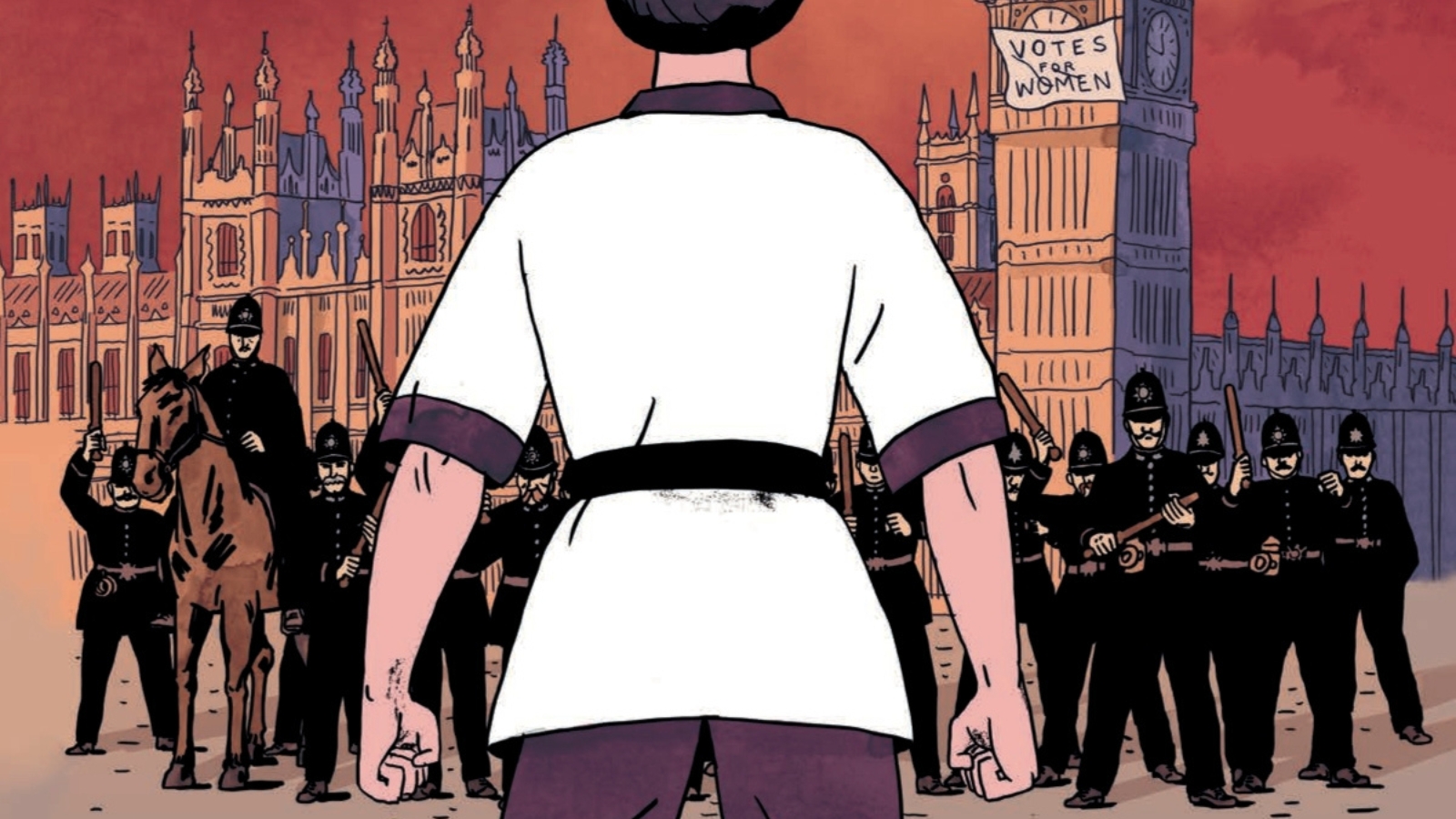A New Graphic Novel Explores How Martial Arts Impacted British Women’s Suffrage

During the women’s suffrage movement in the early 20th century, some fought for their rights physically—using jujitsu. The new historical graphic novel The Bodyguard Unit: Edith Garrud, Women’s Suffrage, and Jujitsu, written by Clement Xavier and illustrated by Lisa Lugrin, examines British suffragettes who chose to fight back against violent suppression of their rights rather than give in to pressure to leave behind their desire to vote.
The Bodyguard Unit is based on the true story of its eponymous hero, Edith Garrud, who was asked by the Women’s Social and Political Union leader Emmeline Pankhurst to train the group’s members in martial arts. Garrud was a pioneering instructor of women’s self-defense and had already made a name for herself in the British women’s suffrage movement by this time, and training “jujitsuffragettes” became a significant part of her legacy. With these defense skills, women could fight abuse and arrest in their impassioned pursuit of the overdue right for women to vote.
“With The Bodyguard Unit, Xavier and Clement have created a comic that is both timeless and timely—a feminist story plucked from history that remains strikingly relevant today; an inspirational tale about the necessity and cost of resistance,” Graphic Universe editorial director Sean Tulien said in a statement.
As seen in the below excerpt, The Bodyguard Unit highlights this unique facet of the British suffrage movement. The graphic novel is set in 1910, just a few years before women in England were granted the right to vote through acts of Parliament in 1918 and 1928.
The British suffrage movement began in 1865, when Leigh Smith Bodichon formed the first Women’s Suffrage Committee. It took her just two weeks to gather nearly 1,500 signatures in favor of women gaining the right to vote. Three years later, John Stuart Mill gave Parliament a petition for female suffrage with more than 21 thousand signatures, and in 1870, John Bright introduced the Women’s Disabilities Removal Bill to extend parliamentary franchise to women on the same terms as men.
Unfortunately, that bill was defeated by a margin of 69 votes. Until the early 20th century, the fight for women’s suffrage came down to a lack of governmental support and opposition from the Lords, despite the majority of MPs voting in favor of its implementation. This is the period covered in The Bodyguard Unit: when British women had become fed up with their rights constantly being shot down by men in power and their lack of safety on the picket lines.
The Bodyguard Unit: Edith Garrud, Women’s Suffrage, and Jujitsu will be available everywhere books are sold on August 1.
(featured image: Graphic Universe)
Have a tip we should know? tips@themarysue.com